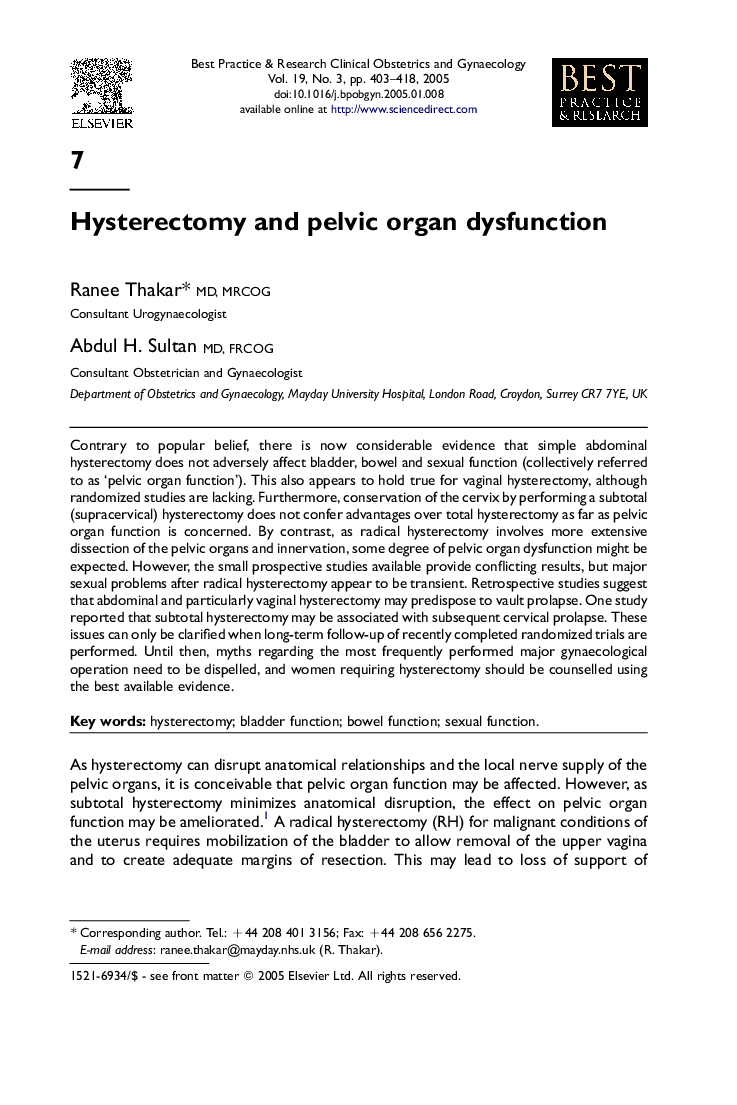| Article ID | Journal | Published Year | Pages | File Type |
|---|---|---|---|---|
| 9315856 | Best Practice & Research Clinical Obstetrics & Gynaecology | 2005 | 16 Pages |
Abstract
Contrary to popular belief, there is now considerable evidence that simple abdominal hysterectomy does not adversely affect bladder, bowel and sexual function (collectively referred to as 'pelvic organ function'). This also appears to hold true for vaginal hysterectomy, although randomized studies are lacking. Furthermore, conservation of the cervix by performing a subtotal (supracervical) hysterectomy does not confer advantages over total hysterectomy as far as pelvic organ function is concerned. By contrast, as radical hysterectomy involves more extensive dissection of the pelvic organs and innervation, some degree of pelvic organ dysfunction might be expected. However, the small prospective studies available provide conflicting results, but major sexual problems after radical hysterectomy appear to be transient. Retrospective studies suggest that abdominal and particularly vaginal hysterectomy may predispose to vault prolapse. One study reported that subtotal hysterectomy may be associated with subsequent cervical prolapse. These issues can only be clarified when long-term follow-up of recently completed randomized trials are performed. Until then, myths regarding the most frequently performed major gynaecological operation need to be dispelled, and women requiring hysterectomy should be counselled using the best available evidence.
Related Topics
Health Sciences
Medicine and Dentistry
Obstetrics, Gynecology and Women's Health
Authors
Ranee (Consultant Urogynaecologist), Abdul H. (Consultant Obstetrician and Gynaecologist),
